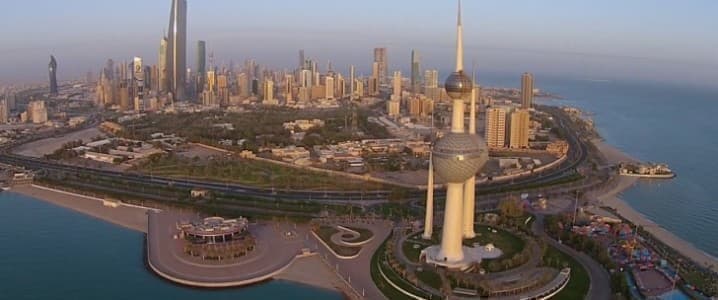With a new oil minister and big production plans there are high hopes for Kuwait’s oil and gas industry. Despite difficulties faced during the pandemic, Kuwait has rebounded and expects to continue increasing its oil high output for so long as global demand remains strong. But to stay competitive in the region and ensure its economic stability, Kuwait must introduce reforms that support economic diversification to decrease its reliance on oil revenues alone.
A new government was voted into office in Kuwait this month, the fifth in less than a year, with a voter turnout of just 51 percent. It was the third election in three years due to an ongoing political crisis and a dispute between the government and lawmakers. The political conflict has delayed reforms across several sectors and has hindered any efforts at economic diversification beyond oil and gas, on which Kuwait still relies heavily for its revenue. Saad al-Barrak will replace Bader al-Mulla as the country’s oil minister, a move that is expected to support the development of the country’s energy industry.
With around 7 percent of the world’s oil reserves and 85 years of drilling experience, oil is still Kuwait’s main form of income, contributing around 50 percent of its GDP and 90 percent of government export revenue. The government has long distributed its oil wealth to its 1.5 million Kuwaiti citizens in the form public sector employment and generous subsidies. But this spending is becoming more and more unsustainable, leading to budget deficits, and the government has been in a gridlock over potential reforms for spending cuts and economic diversification. Related: Church Of England Ditches Big Oil Stocks Over Climate Goals Failure
Kuwait suffered during the Covid 19 pandemic due to the sharp fall in demand for oil and gas, seeing its economy contract by 8.9 percent in 2020. This was the biggest decrease in the Arabian Gulf, a region that relies heavily on fossil fuel revenues. However, as the demand for oil went up, its economic growth rose by 1.3 percent in 2021 and 8.7 percent in 2022. This growth is expected to slow in 2023 due to lower oil prices and OPEC+ production cuts. While Kuwait’s GDP is still expected to increase by around 2.6 percent, this is lower than the regional average.
The volatility of Kuwait’s economic growth, which continues to depend heavily on oil prices and the global demand for fossil fuel, demonstrates the need for greater economic diversification. As the world undergoes a green transition, Kuwait must use some its oil revenues to invest in the economic development of other sectors, including renewable energy. Monica Malik, the chief economist at the Abu Dhabi Commercial Bank, explained “Kuwait needs to meaningfully start with the diversification of its economy and fiscal position away from oil.” She added, “While Kuwait is benefiting from the stronger oil price, it will remain vulnerable to any reductions in prices and the global transition away from oil.”
While economic diversification is key, there are plans to continue developing Kuwait’s oil and gas industry for as long as demand remains high. According to Ahmed Jaber al-Aydan, the CEO of the Kuwait Oil Company (KOC), the country’s oil production currently stands at above 2.8 million bpd and is expected to reach 3 million bpd by 2025. Kuwait is continuing to follow the quota cuts enforced by OPEC+ but has significant potential to raise its output to meet global demand, particularly as several countries curb their imports of Russian oil.
This year, the state-owned KOC announced it would be investing $43 billion in new oil projects in the next five years to increase its output by almost 200,000 bpd. KOC’s CEO al-Aydan also stated that he expects production to rise to around 4 million bpd by 2035, a level which the company could maintain until around 2040 when demand decreases in line with the global green transition. Al-Aydan stated: “KOC’s strategy during the next five years, until 2028, includes several projects covering drilling of new wells, increasing their output and developing other facilities,” adding, “This strategy involves spending nearly KWD13 billion on projects and oilfield development besides the construction of new oil facilities.”
This enthusiasm around the future of Kuwaiti oil comes following significant investment in clean-up activities. In 2022, Kuwait awarded five contracts to national and foreign firms for the clean-up of polluted regions, at a cost of almost $1.01 billion. The KOC had plans to award more contracts for similar operations in other parts of the country. Clean-up operations are expected to be completed within four years. Kuwait has suffered from severe oil pollution since the first Gulf War in 1990. During the conflict, Iraqi forces blew up oil wells, tanks, refineries, and other facilities in Kuwait. This resulted in fires that burned an estimated four to six million barrels of crude per day.
Despite seeing its oil revenues fall during the pandemic, Kuwait’s oil industry has rebounded to support strong economic growth in the past two years. There are now high hopes for the future of Kuwait’s energy sector, with heavy investment expected in new projects. However, as OPEC+ maintains its production cuts and the world invests heavily in a green future, economic diversification will be key to ensuring the future stability of Kuwait’s economy.
By Felicity Bradstock for Oilprice.com
More Top Reads From Oilprice.com:
- Iran’s Booming Oil Industry Adds Urgency To Nuclear Negotiations
- Are Oil Prices Set for A Rally?
- China’s Imports Of Russian Crude Oil Hit A Record High


















